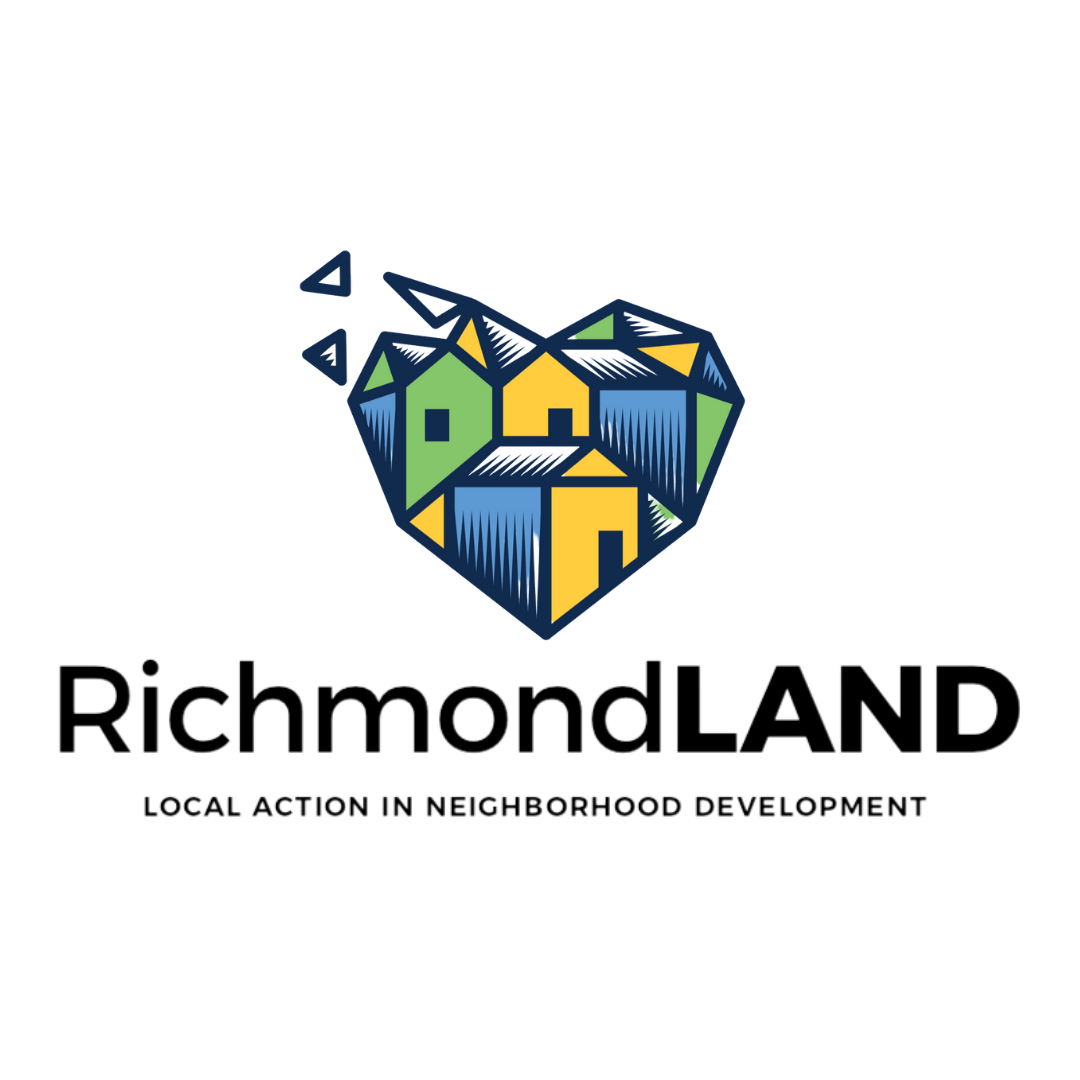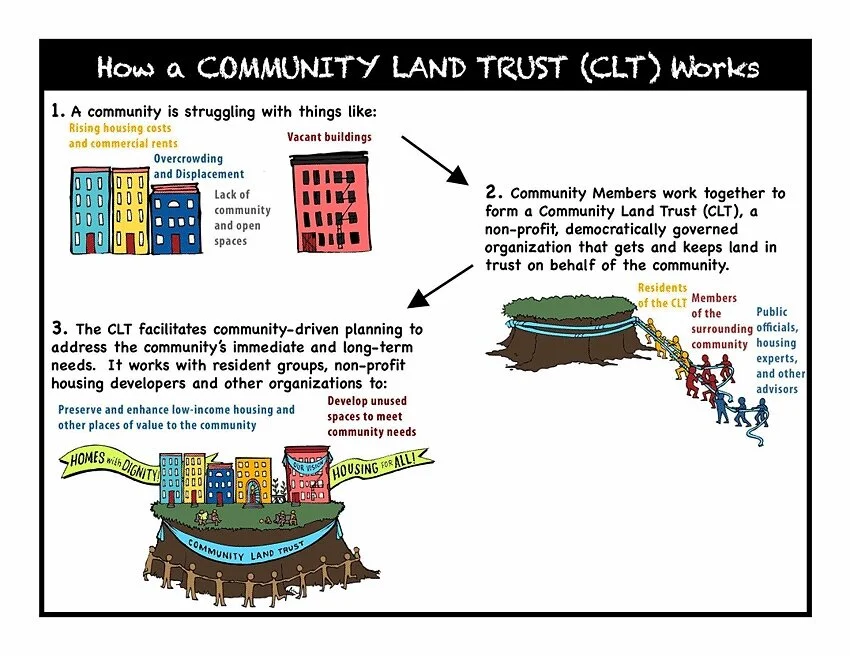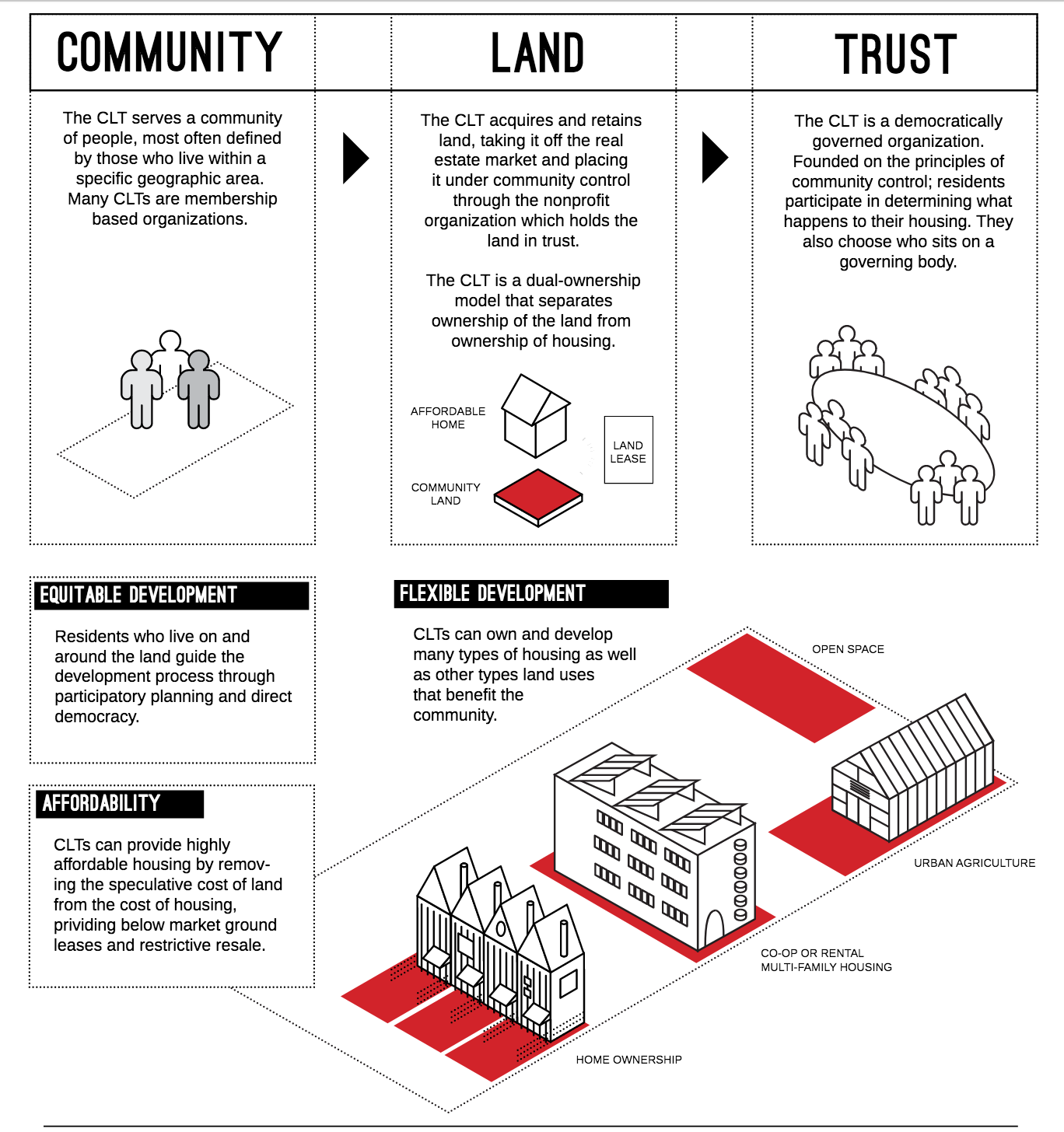Richmond LAND is Contra Costa’s First Community Land Trust
Why we adopted the community land trust model
Community Land Trust’s have a 50 year legacy of creating pathways for community-driven housing, development, and stewardship that can be designed and created to serve the unique needs of a communities' local context. The overarching themes and values of a community land trust were in alignment with our commitment for deep democracy in governance, mutual benefit, and collective ownership. A commons approach towards land-use rejects the commodification of property and land speculation, and advances local peoples collective effort towards long term health, wellbeing, and lasting affordability.
There is a strong network of national and regional community land trusts, and various resources on the CLT Model. Visit New Communities Inc. to learn more about the civil rights roots and origin of the community land trust model.
Photo Credit to NYC Community Land Trust Initiative
How the model can increase collaboration and collective impact
While the community land trust owns the land, different entities can own the buildings and improvements that sit on top of the land. Residents, community groups, non-profits, and small business that are interested in purchasing a property can partner with a community land trust to ensure that the site is maintained affordable in perpetutity, and that its uses are enhanced or preserved to meet the needs of the leaseholder and surrounding community.
Credit: Communities Over Commodities: People Driven Alternatives to an Unjust Housing System, A Report by Homes For All Campaign of Right To The City Alliance, March 2018
What does it mean to protect, control, and tend to stolen land?
An Active Land & Labor Acknowledgement
While Richmond LAND seeks to stabilize, develop, collectively-control, and tend to land, we do so with the awareness that we occupy unceded Huichin and Karkin Ohlone territory.
We acknowledge that land theft, desecration of indigenous homelands, and the dismantling of indigenous sovereignty was done to advance colonization.
We acknowledge that capitalism and white supremacy are branches of colonization that have persisted throughout hundreds of years of oppression, are alive today, and contribute to keeping Black, Indigenous, and all other People of Color from thriving.
We further acknowledge that this country’s political economy and social institutions were built on the forced labor of African people on stolen land through violent, systematic abduction from their homelands and enslavement over hundreds of years.
We further acknowledge the exploitation of immigrant and refugee communities as modern forms of cheap and disposable labor are regularly carried out on stolen land.
Thus, we acknowledge that we have been impacted and harmed by these histories and experiences imposed on our ancestors and communities. We further uplift the shared struggle among Black, Indigenous, and All People of Colors who are fighting against gentrification and displacement as modern tools of settler colonialism, capitalism, and white supremacy.
We acknowledge that our role as land stewards is in service to the generational healing and larger goals of BIPOC communities’ towards land and cultural sovereignty.
We also acknowledge that indigenous people continue to live here, steward the land, and resist settler colonialism and that our organization’s act of resistance to settler colonialism should not interfere or undermine the will of indigenous communities.
We conclude that our Land & Labor acknowledgement is an active and evolving statement and process. It requires us to recognize historical injustices and invites us in to be active participants in our collective healing and liberation.
As a COMMUNITY that holds LAND in TRUST we must act with integrity as our role and responsibilities grow. We commit to engaging in continued learning and dialogue, and follow the will of BIPOC leaders to rematriate the land and protect it from harm and exploitation.
We encourage further participation in crafting our Land and Labor Acknowledgement. Please send your thoughts and remarks to the following questions to info@richmondland.org to further improve on our statement and maintain accountability.
How can we honor our home, the memories we have made on this land, while also maintaining deference to the will and desires of those indigenous to the land we occupy?
What is the history of this place? What are the compounded impacts of colonialism that we have to name? How do these forces show up today?
How should we share our/your communities' relationship to these lands and how we came to be here?
What intentions to disrupt and dismantle colonialism beyond this acknowledgement do we need to be explicit about?


